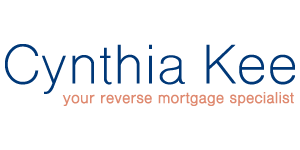Social Security Insecurity?
Pressing The Reset Button: The Gap Years
As human lifespan climbs steadily towards the century mark, Social Security is only one — and woefully inadequate — means of funding a lengthening retirement period. In fact, we’re in the midst of creating second-stage work lives, or “encore careers,” that are evolving at the intersection of money, meaning, and social impact, says social entrepreneur Marc Freedman, author of The Big Shift: Navigating the New Stage Beyond Midlife
Adults 60 and over are returning to school in droves to train in entirely new areas, often centered around social issues such as the environment, health, education, and social services. Educational innovation, from lifelong learning to distance classes via the Internet, is proliferating to keep pace with this changing demographic. But where are the resources to pay for this transition training?
Retirement And Individual Purpose Account
Enter the Individual Purpose Account (IPA). Freedman suggests that rather than raid your IRA or your children’s college fund, why not create a tax-advantaged Individual Purpose Account targeting the transition years? Such accounts “could be both a policy opportunity and a potential bonanza for the private sector, which is offering retirement products but little in the way of savings vehicles for alternative approaches to the last two, three, or four decades of life.”
Reverse Mortgage Retirement Funding
Until such time as the government implements this visionary idea, a reverse mortgage might be an optimal resource to fund an IPA — especially because reverse mortgage holders can tap their loans only when needed, prudently saving the rest.
In fact, reverse mortgages can be reimagined as “seed capital” to help people invest wisely in the next stage of their lives, whether that involves expanding their education to enter an encore career, using a lifetime of accumulated knowledge and wisdom to consult or mentor, traveling, writing a book, or any combination of the above, and more. “Reverse mortgage” accurately describes this dynamic demographic, who are reversing expectations of retirement and reimagining what the next stage of life looks like!
Everything in life has pros and cons. The question of whether or not a reverse mortgage is right for you depends solely on your personal situation.
The amount that can be borrowed is a function of your age (minimum age 62) and the amount of equity in your home.
Social Security benefits are not affected by reverse mortgages.
Your loan is FHA guaranteed and includes a provision that your line of credit can never be frozen, reduced, or changed in any way. It stays in place for a lifetime whether your property value increases or decreases.
Your heirs have a full year to make disposition of the loan balance without the need of making a monthly payment.


